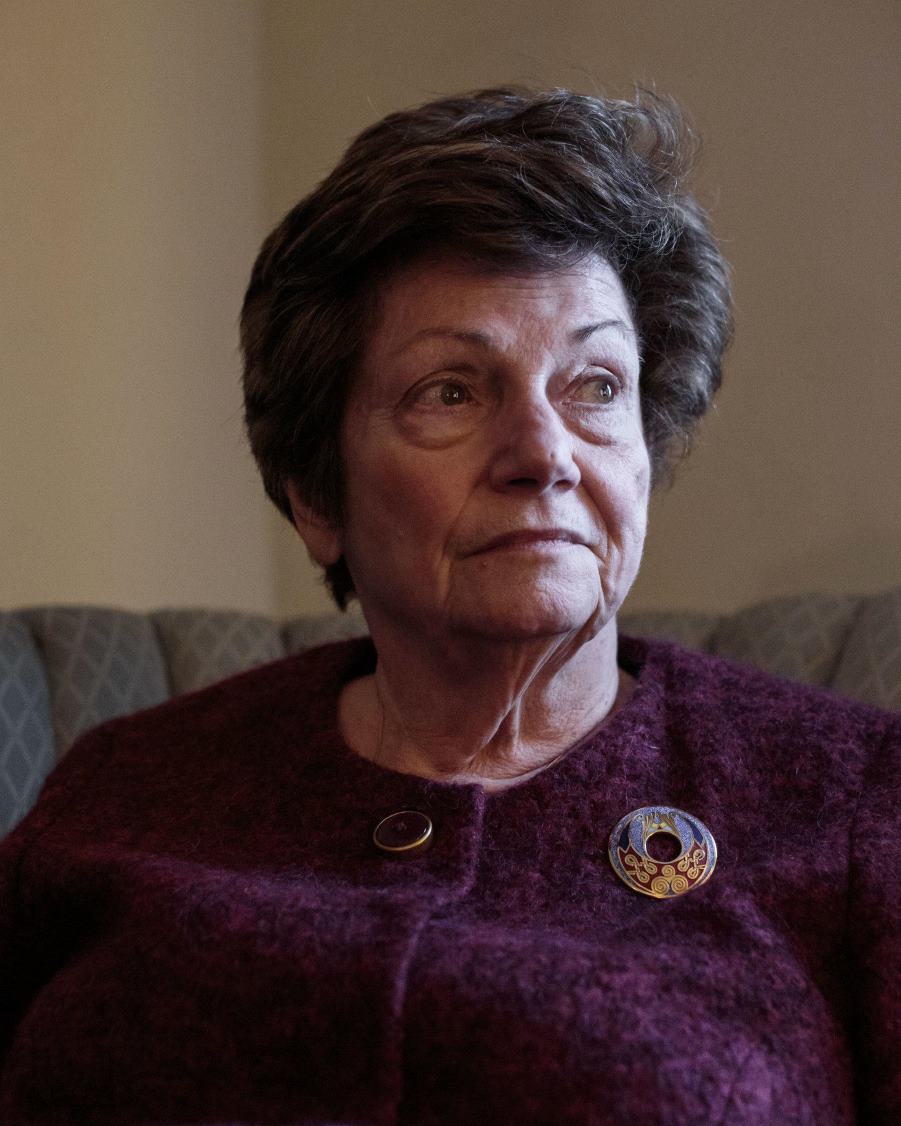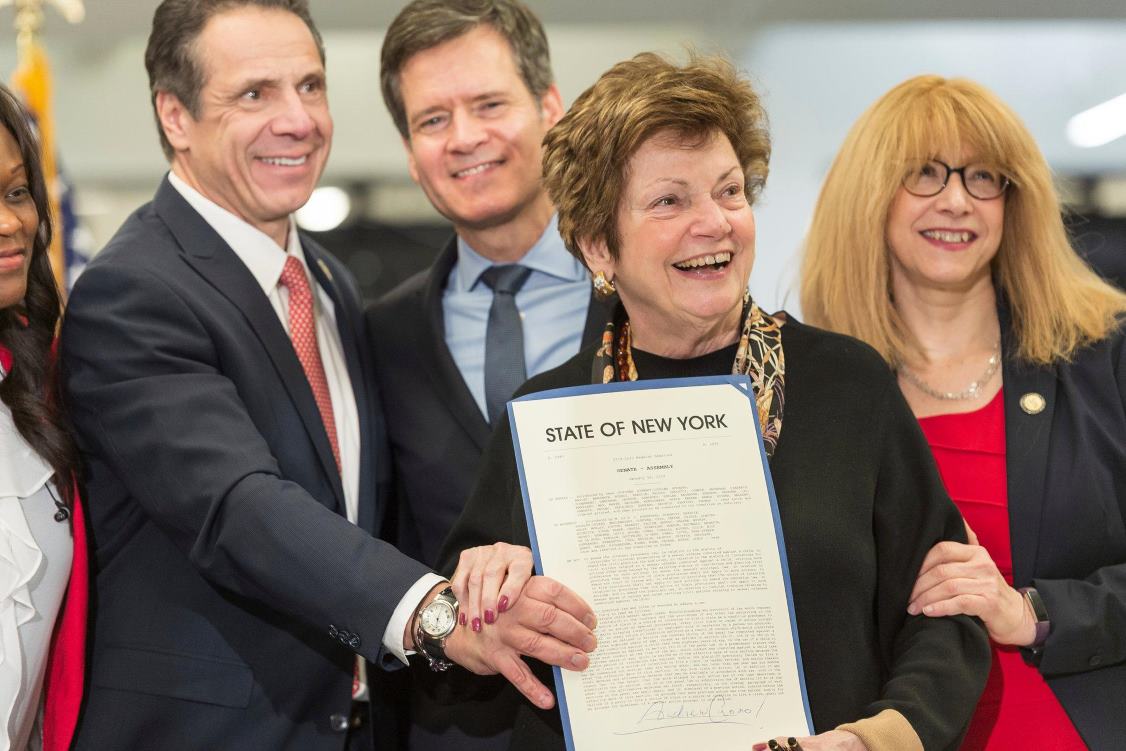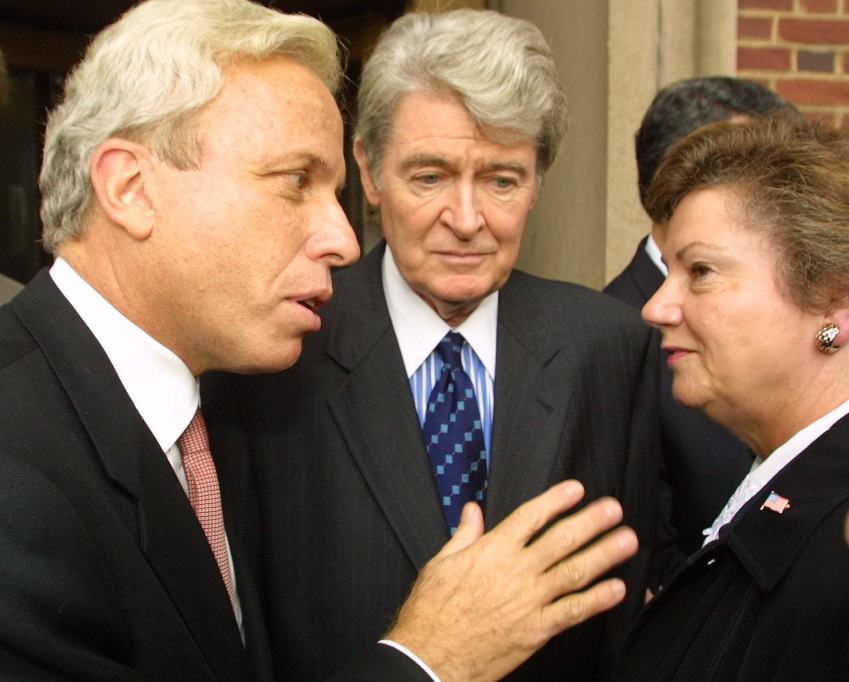|
She Fought for Stronger Sexual Abuse Laws. Her Son Was the Reason.
By Rick Rojas
For years, the Child Victims Act failed again and again. And for years, Margaret Markey continued to push for it in the New York State Legislature. Several times, the legislation passed in the Assembly by a wide margin. But then it would collide with powerful opposition: the insurance industry, the Roman Catholic Church, the Boy Scouts of America. The Senate never even took it up for a vote. Ms. Markey, then a member of the State Assembly from Queens, became so attached to the legislation that some took to calling it the “Markey Bill,” especially her critics as they publicly condemned her. But the aim of the bill — extending the statute of limitations for bringing child sexual abuse cases — had become nearly her singular focus. She did not talk about it, but her devotion was fueled by personal experience: As an adult, one of her sons, Charles, had told her that years earlier he had been sexually abused by a priest at the Catholic parish where their family had worshiped for generations. “Since so many abused children are not able to come to grips with what has happened to them until much later in life,” Ms. Markey said in 2015 as she renewed her call to pass the bill, “it is the victims who suffer the most as a result of our state’s archaic statute of limitations for these offenses.” Last week, after 13 years, a version of the legislation became law. Ms. Markey had no involvement in its recent success; a challenger beat her in 2016 as she sought a 10th term. But as officials and advocates celebrated their victory, they repeatedly cited Ms. Markey’s zeal in waging a political fight that was bruising and once seemingly Sisyphean. When Gov. Andrew M. Cuomo signed the bill, Ms. Markey standing behind him, he called her efforts a “profile in courage.” “She didn’t have an easy time of it, but she went with her convictions,” said Assemblywoman Linda B. Rosenthal, who succeeded Ms. Markey as the bill’s sponsor. “She did a lot of the legwork for this, and she deserves a lot of credit.” Ms. Markey, a Democrat, first introduced the legislation in 2006, and she continued forcing it back onto the agenda in Albany until she lost her seat in 2016. Her husband had nudged her to retire, her family said, but she insisted on running again, hoping the bill would have better odds the next time around. Ms. Markey has been diagnosed with a form of dementia, making it harder for her to talk about the legislation. But in recent interviews with The New York Times, family members, including her husband, son and daughter, have publicly discussed for the first time the allegations of abuse that forged her personal connection to the issue. “I think she knew I was in pain,” her son Charles, now 52, said. Mr. Markey, a retired New York City firefighter, said that after telling his parents, he reported the allegations to the Queens district attorney’s office, but prosecutors told him the statute of limitations prevented them from pursuing his case. “She decided to do something about it,” he said. “She’s been through so much over the years. I think now she’s satisfied knowing this has finally gotten through.”
A changing political calculus
Some have attributed the change in fortune to the Democrats gaining a majority in the Senate. But others, including Ms. Rosenthal, argued that the new political calculus had grown from a larger cultural shift. Ms. Rosenthal pointed to the series of events that invigorated the conversation around extending statutes of limitations: the monsoon of sexual assault allegations against Bill Cosby; the child sex abuse scandal at Penn State University; the explosive grand jury report in Pennsylvania that detailed decades of alleged abuse by Catholic clergy. Suddenly, Ms. Rosenthal said, passing the Child Victims Act seemed inevitable. “It wasn’t ever a question of: Would we have the votes?” she said of the most recent effort, noting its extensive bipartisan support. Every senator voted yes. In the Assembly, it passed 130-3. Under the new law, prosecutors can bring criminal charges until a victim turns 28 and assault survivors can file lawsuits until the age of 55. The law also creates a one-year “look-back window” to allow expired cases to become newly viable. Before, New York had some of the most restrictive statutes of limitations in the country, requiring that criminal charges or lawsuits be brought before a victim’s 23rd birthday. After it passed, Catholic officials were among those praising it. “Their witness has moved us all,” a statement from the state’s bishops, led by Cardinal Timothy M. Dolan, the archbishop of New York, said, referring to the victims who had shared their stories. “We renew our commitment to combating the monstrous crime of childhood sexual abuse and helping all survivors find recourse and reconciliation as they heal.” But the statement belied the years of animosity that had swirled around the debate. The Catholic Church was not alone in its opposition. The American Insurance Association and the Boy Scouts of America hired lobbyists to quietly campaign against it, and Orthodox Jewish groups also resisted the bill. The dissent was centered in large part on the look-back window. “This extraordinary provision,” the New York Catholic Conference said in testimony submitted to the Legislature last year, “would force institutions to defend alleged conduct decades ago about which they have no knowledge and in which they had no role, potentially involving employees long retired, dead or infirm, based on information long lost, if it ever existed.” Still, the legislative fight often narrowed into a showdown between Ms. Markey and the church. People she had known from the family’s parish called her, saying she was hurting the church, her family said. Her political opponents called her anti-Catholic. When the Catholic Conference put out statements denouncing the legislation they called her out by name, saying she was promoting a bill “to make it easier for sexual abuse victims to sue almost anyone — except public schools.” A son’s pain, a mother’s purposeMs. Markey’s career in politics started with a traffic light. Drivers would fly down the street in front of the family’s home in Maspeth, Queens; she petitioned local officials to install a light, her family said. Then, she pushed for another one. Before she was elected to the Assembly in 1998, she served on community boards in Queens and helped start Maspeth Town Hall, a community center. She also worked for the former borough president, Claire Shulman. “Somewhere along the way we found out about what some priest down there was doing,” said Ms. Markey’s husband, who is a retired State Supreme Court judge in Queens and is also named Charles. “We had no idea. That’s like sticking a dagger in our hearts.” For decades, the Markey family had been part of the congregation at St. Mary’s Winfield, also known as Blessed Virgin Mary Help of Christians, a Catholic church in Woodside, Queens. Ms. Markey volunteered as a eucharistic minister. The elder Mr. Markey was a lector, reading passages from the Bible during Mass. Charles Markey, the oldest of the three children, attended the church school, just as his father had. He was also an altar server. He said he was repeatedly sexually abused by a priest at the church when he was in the seventh and eighth grades; it started when he was around 12 years old. For years, he told no one. Eventually, as an adult, he opened up to a girlfriend, who had told him her own story of assault. He was in his 30s, he said, when he sat his parents down, telling them in detail about what had happened. (A former prosecutor, who spoke on the condition of anonymity, citing the sensitivity of the matter, said he recalled the allegation being brought to the Queens district attorney’s office, and it being discussed.) “You’re a little kid,” the younger Mr. Markey said, noting the abundance of fear and shame that had kept him from speaking up. “You can’t make those adult decisions. So much is taken away from you. Your self-esteem is destroyed. Your confidence is destroyed.” In a statement, the Diocese of Brooklyn, whose territory includes Queens, said Mr. Markey took part in its independent reconciliation and compensation program and his allegations were found to be credible. The diocese said he had not accepted a settlement offer. It also said that the family had been offered counseling in the past, but they did not accept. “The Diocese of Brooklyn takes all allegations of sexual abuse seriously,” the statement said. “We commend the new version of the legislation, recently signed into law, that now helps all victims-survivors. We hope it offers them a path to recourse and reconciliation.” “A weight off my shoulders”Like many others, Mr. Markey now faces a choice. Victims whose cases had been stifled by the old statute of limitations have a new opportunity. Lawyers are anticipating a flood of cases when the look-back window opens later this year. Mr. Markey said he is still not sure what he will do. “I would like to have some kind of justice,” he said. But, more than anything, he was heartened to know that he and others now have the decision available to them. Last week, a friend sent Mr. Markey the list published by the Diocese of Brooklyn naming more than 100 priests who had been credibly accused of sexually abusing a child. He said he saw his abuser’s name, and that he continued serving in parishes and schools until he was defrocked. Days before the bill signing, Ms. Markey, who is now 77, sat in her living room on a snowy afternoon, in the house in Maspeth where her son had first told her of the abuse. Soon enough, she would be back with a familiar crowd, standing among politicians, activists and abuse survivors. The governor would call out her name, praising her tenacity, as he signed the bill. But in the quiet of her home, when asked about the bill she had pursued for so long, she stayed silent for a moment. Then she shook her head and started to cry.
|
.
Any original material on these pages is copyright © BishopAccountability.org 2004. Reproduce freely with attribution.


